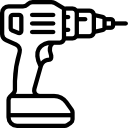- اتو لوله سبز
- اره پروفیل بر
- اره عمودبر (اره چکشی)
- اره فارسی بر
- اره گرد (اره دیسکی)
- اره مویی
- اره میزی
- اره نواری (گوشت بری)
- اره همه کاره (افقی بر)
- ابزار چندکاره
- بالابر برقی
- بتن ساب و موزایک ساب
- بکس برقی
- پیچگوشتی برقی
- پیستوله برقی
- بیسکویت زن
- چکش تخریب
- دمنده/مکنده (بلوور)
- دریل بتن کن
- دریل ساده (سرکج)
- دریل ستونی
- دریل ضربه ای/چکشی
- دریل مغناطیسی (مگنتی)
- دریل نمونه بردار (کرگیر)
- دستگاه جوش
- رنده و فرز نجاری
- سنباده برقی
- سشوار صنعتی
- سنگ دوطرفه (چرخ سنباده)
- سنگ و پولیش
- شیارزن و مرمربر
- فرز مینیاتوری
- فرز انگشتی
- میخکوب و منگنه کوب
- مینی سنگ
Exploring the Advantages of Installing a Water Softener for Your Home
Water quality plays a significant role in our daily lives, impacting everything from our skin health to the lifespan of household appliances. Hard water, filled with minerals like calcium and magnesium, often leads to a range of issues that can disrupt the comfort of our routines and increase maintenance requirements for various systems in our homes.
Installing a water softener can mitigate these issues, offering various advantages that enhance water quality and ease the burden of upkeep. The installation process is typically straightforward and can lead to noticeable improvements in water taste, skin hydration, and appliance efficiency. The investment in a water softener can result in reduced energy costs and prolong the life of plumbing fixtures.
Beyond just a convenience, the benefits of soft water extend to better cleaning results, less soap usage, and smoother laundry. As we explore the positive impacts of water softeners, it becomes evident why many households are opting for this solution to improve their overall living experience.
How Water Softeners Protect Your Plumbing
Water softeners play a significant role in safeguarding your plumbing systems from the damaging effects of hard water. By addressing the issue of scale, these systems help prevent mineral buildup within pipes and fixtures. Scale build-up can lead to reduced water flow, clogs, and increased wear on appliances.
With softened water, scale formation is minimized, allowing for the smooth operation of plumbing systems. This protection translates into fewer repairs and extended lifespan for your pipes and appliances. Fixtures like faucets and showerheads remain free from unsightly deposits, making maintenance easier.
Furthermore, utilizing a water softener can enhance the efficiency of water heaters. By reducing scale accumulation, heaters can operate more efficiently, resulting in lower energy bills. This not only benefits homeowners but also conserves energy resources in the long run.
In summary, investing in a water softener contributes significantly to protecting your plumbing system. Its ability to prevent scale accumulation enhances the reliability and longevity of plumbing infrastructure while offering cost-effective benefits over time.
Improving Skin and Hair Health with Soft Water
Soft water can significantly enhance your skin and hair health. The absence of hard minerals, such as calcium and magnesium, helps to prevent dryness and irritation, commonly associated with hard water. By using soft water, you may notice softer skin and a reduction in issues like eczema or psoriasis, which often worsen with harsh minerals.
For hair care, soft water provides a gentler cleansing experience. It can help retain moisture, making hair feel smoother and more manageable. This type of water reduces the buildup of mineral deposits on hair strands, which can often lead to dullness and brittleness. Many users report healthier hair after switching to soft water, as it allows for better absorption of shampoos and conditioners.
Incorporating soft water into your daily routine can enhance your overall grooming experience. During the installation process of a water softener, you are not only investing in clearer plumbing but also in the quality of your personal care routine. The benefits for both skin and hair are immediate and noticeable, leading to a more comfortable and refreshing daily regimen.
Energy Savings: The Impact of Soft Water on Appliances
Soft water can lead to significant energy savings by enhancing the efficiency of household appliances. Hard water contains minerals that can build up over time, affecting the performance of appliances and increasing energy consumption. With soft water, appliances operate more smoothly, leading to lower energy use.
- Increased Soap Efficiency: Soft water improves the lathering properties of soap, allowing for better cleaning with less product. Consequently, appliances like washing machines and dishwashers can perform their jobs more effectively, reducing energy needed for hot water cycles.
- Appliance Longevity: The absence of scale buildup means appliances such as water heaters, coffee makers, and dishwashers function optimally for longer. This longevity reduces the need for premature replacements, translating to long-term cost savings.
- Cost Savings: By using soft water, households may notice a decrease in energy bills. Efficient appliances consume less electricity and hot water, leading to reduced operating costs over time.
Beyond energy savings, soft water contributes positively to skin and hair health, enhancing the overall quality of daily routines.
Cost Comparison: Soft Water vs. Hard Water Expenses
Investing in a water softener can yield significant cost savings over time when compared to ongoing expenses associated with hard water. Hard water can lead to higher bills, primarily due to reduced soap efficiency and increased maintenance requirements for plumbing systems and appliances.
In households with hard water, homeowners often face frequent repairs or replacements of their appliances due to scale buildup. This can significantly shorten appliance longevity and raise operating costs. In contrast, soft water minimizes scale buildup, resulting in fewer maintenance issues and prolonged appliance lifespan.
Additionally, the need for more soap for cleaning and bathing with hard water can increase monthly household expenses. Soft water not only enhances skin and hair benefits by requiring less soap for washing but also reduces the overall demand for cleaning products.
When considering the installation process of a water softener, initial costs may seem high; however, the long-term cost savings realized through decreased energy bills and reduced wear on plumbing systems make it a valuable investment. For further insights into this topic, you can refer to https://plumbingtechandrs.net/.




